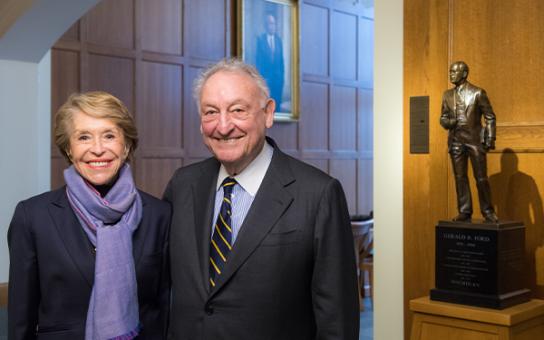We have been very impressed with our Ford School student fellows. We applaud their hard work and their dedication to public service, and we are thrilled to expand these opportunities to even more talented Ford School students. They give us great hope for the future.”
Joan and Sandy Weill
Weill Scholars

Sunny Huang (MPP/MBA ‘26) grew up in Philadelphia as the oldest child of a single immigrant mother. Her early experiences sparked an interest in understanding the history of minority communities that came to be marginalized yet thrive today and inspired her motivation to work in community development. Before coming to the Ford School, she studied sociology at Lehigh University, worked as a Philadelphia grassroots nonprofit director and a two-time Fulbright Taiwan grantee, and continued her studies at Taiwan’s National Cheng Kung University as a Chinese language scholarship student. Now, Huang is working towards her goal of becoming a social impact consultant. She is excited to integrate practicality with a social impact imagination to devise creative tri-sector solutions that improve socioeconomic mobility and intergenerational impact for underestimated communities.
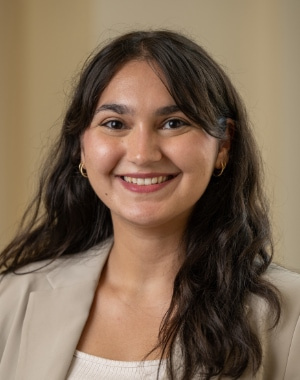
Milena Saakyan (MPP ‘26) was born in Tashkent, Uzbekistan and raised in Buffalo, NY. Her passion for combatting educational inequities stems from her own experience as an immigrant and first-generation college student, and she has spent much of her academic and professional career working to reduce barriers to postsecondary access. Before joining the Ford School, Saakyan worked as a researcher at the University of Chicago Inclusive Economy Lab evaluating the impact of college access and success programs across the city, including through partnerships with Chicago Public Schools and City Colleges of Chicago. She also previously conducted research with SKDK, the Cornell ILR Buffalo Co-Lab, and with Cornell University Sustainable Design across a variety of social policy issues. After graduation, Saakyan hopes to continue using research to promote more accessible pathways to college access and completion. In her free time, she loves lap swimming, cooking Armenian and Uzbek food, and reaching her daily 10,000 steps. She holds her BS from Cornell University, where she studied applied economics and management, and minored in public policy.
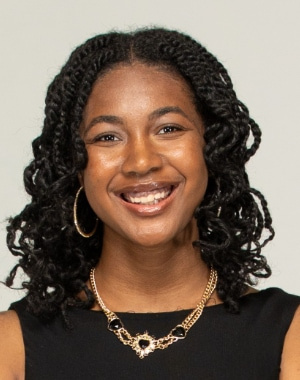
Tierra Tresvant (MPP ‘26) grew up in Detroit, Michigan where her experience in the public education system inspired her to pursue a career in education and youth policy. She earned a BA in public and nonprofit administration with a minor in Africology and African American studies from Eastern Michigan University in 2024. At EMU, she was a Presidential Scholar and participated in the McNair Scholars program. She also served as a Diversity Fellow at the Honors College and an Advancement Student Ambassador at the EMU Foundation. She participated in the Summer Education Research Program at the University of Wisconsin-Madison where she analyzed the relationships that community-serving organizations built with schools and families during the pandemic. Tresvant is excited to continue her education at the Ford School, and plans to use that education to make a difference for young people in Michigan. In her free time, she likes to crochet, rollerskate, and play video games.
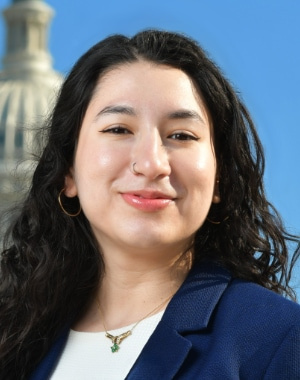
Jessica Vivar (MPP ‘26) is a first-generation high school and college student from Queens, New York City. Before joining the Ford School, she was the government affairs associate at the Institute for Higher Education Policy in Washington, DC. She also previously served as a Congressional Hispanic Caucus Institute Public Policy Fellow at the Senate Health, Education, Labor, and Pensions Committee, working on education issues within the committee’s jurisdiction. Vivar taught Algebra in New York City and was awarded a Fulbright Program grant to represent the United States as an English Teaching Assistant in Colombia. As a first-generation student and the daughter of two Ecuadorian immigrant parents, education was the most important aspect of her life while growing up. Upon graduation, she hopes to continue her mission to create more accessible educational opportunities for historically underserved communities through higher education policy. Outside of policy, she enjoys roller skating, traveling, and spending time with friends.
Youth Policy Fellow

Samuel Owusu is originally from Chicago, IL. Owusu is a graduate from Davidson College in North Carolina where he majored in international relations and educational studies. While at Davidson, he became engaged with education research during his time as an analyst for the College Crisis Initiative at Davidson College (C2i), an organization that tracks how educational institutions are adapting and innovating during COVID-19. After which, Owusu spent the past two years as a research analyst for the Education Policy Initiative (EPI) at the Ford School. During his time at EPI, Owusu supported numerous faculty-led research projects, including Michigan's Young 5s Evaluation and Michigan's Tuition Incentive Program Evaluation; both projects which deepened his interests in studying inequities across the P-20 education system. Owusu is interested in studying how public finance structures shape educational outcomes and in postsecondary access/affordability. He hopes to utilize his training from the past work experiences and the Ford School into a career that helps to translate education research into practice through policy work which focuses on reducing barriers to and through education systems. Owusu is an avid rock collector, biker, and amateur photographer.
Past Weill Scholars and Youth Policy Fellows
-
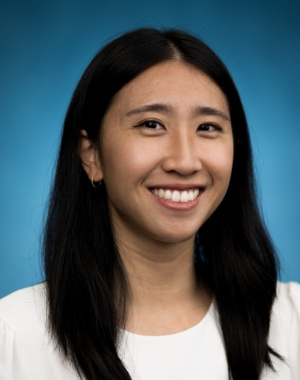
Winnie Chen is a Master of Public Policy student born in China and raised in California. She is the first in her family to graduate high school and college, and hopes to be the first to successfully obtain a master's degree. Prior to joining the Ford School, she worked at different California state agencies as an analyst with a focus on equity and accessibility. She conducted research on policies that aim to uplift Californians in disadvantaged and underserved communities. She is also passionate about enhancing public access and engagement with the state's complex decision-making processes that often leave out marginalized groups. After graduation, Chen hopes to continue her work in public service as a policy analyst at the local level.
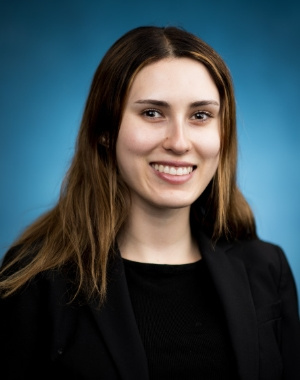
Naomi Joy Garcia was born and raised in Riverside, California. She graduated from UC Berkeley with degrees in legal studies and sociology, and had the honor of participating in the Public Policy and International Affairs (PPIA) Junior Summer Institute at the UC Berkeley Goldman School of Public Policy. As a sophomore, she served as UC Berkeley’s primary student liaison for university affairs related to the 2020 Census; with partnerships with United Way, local government officials, and the UC Office of the President, her team hosted a series of roundtable discussions with community leaders, and strategized on how to best engage the greater Berkeley community during the COVID-19 pandemic. Additionally, she served as a student-elected senator within Berkeley’s student government organization, and assisted with research at the Othering & Belonging Institute and the UC Berkeley Graduate School of Education. Garcia is passionate about campaigns and elections, constitutional law, social policy, and exploring the ways in which we can make higher education more accessible.
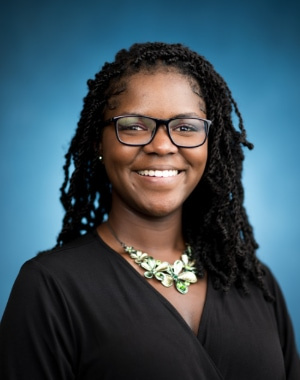
Nia Knox is a first-generation student from Broward County, South Florida. Inspired by the support of her community, she seeks to wield policy as a tool to empower marginalized groups with opportunity. She previously interned for the Economic Policy Project at the Bipartisan Policy Center. Continuing to advance the skills gleaned during her undergraduate thesis investigating pandemic-era SNAP benefits, Knox hopes to develop her work in domestic social policy.
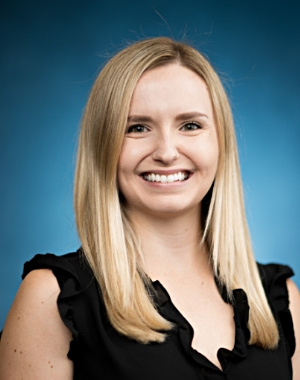
Farah Pitcher is a Master of Public Policy student at the Ford School. She earned her Bachelor of Science with honors from the University of Michigan in 2022, majoring in biology, health, and society with a minor in political science. She is from Saint Johns, Michigan and transferred to the University from Lansing Community College. Her passion for combating social inequities comes from her own personal experiences particularly as a first generation student. Through work at Beyond the Diag helping students navigate housing off-campus, Public Citizen campaigning for increased voting rights in Michigan with Proposal 22-2, and completion of the Public Policy and International Affairs Fellowship (PPIA) at the Ford School, she developed a clear vision of herself working to serve the public good. She plans to pursue social policy, health policy, and anti-poverty policy with an emphasis on dismantling barriers that she had once faced and continue to see loved ones struggle with. Outside of policy, she is an avid foodie who enjoys being active, traveling, and spending time with her pets.
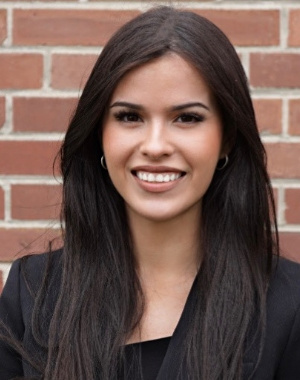
Alexie Milukhin is a first-generation college student with a personal and professional interest in poverty alleviation and educational equity. Prior to joining the Ford school, she studied community development and capacity building domestically, engaging in empirical research on Michigan hispanic centers, and abroad, as a part of study-abroad projects in Puebla and Oaxaca Mexico. Alexie is passionate about social policy and structuring systems to maximize accessibility. This work has taken the form of public service, including legislative work under the Hispanic Latino Commission of Michigan, the Congressional Hispanic Caucus Institute, and as a Constituent Services Director within the Michigan House of Representatives. Upon graduation, Alexie plans to return to public service and further policy initiatives that dismantle barriers to accessing healthcare, welfare, and education.
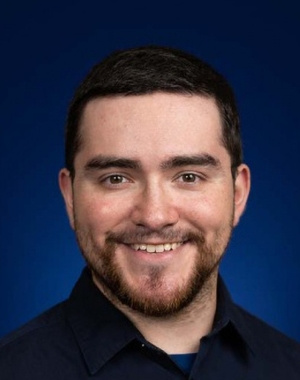
David Castro was born and raised in the City of Chicago. During his senior year of high school in New England, he interned in DC for U.S. Senator Jeanne Shaheen of New Hampshire. He pinpoints the experience on Capitol Hill as a major source of his passion for public service, particularly the Senator’s role with the U.S. Senate Committee on Foreign Relations. He earned his Bachelor of Arts in Political Science from Vanderbilt University, minoring in French and Managerial Studies: Corporate Strategy. After graduating from Vanderbilt, David worked with the federal government. Most recently, he served in a communications role with the National Park Service, traveling to Alaska and to California to learn about preserving natural and cultural resources for future generations. Thanks to his wide-ranging activities, David’s interests include foreign policy, diplomacy, national security policy, and environmental policy. He participated in the Public Policy and International Affairs (PPIA) Junior Summer Institute (JSI) at the Ford School a few years before enrolling as a Master of Public Policy (MPP) student, and he is happy to return to the University of Michigan overall! In his spare time, he enjoys traveling, hiking, and cheering on all Chicago professional sports team.
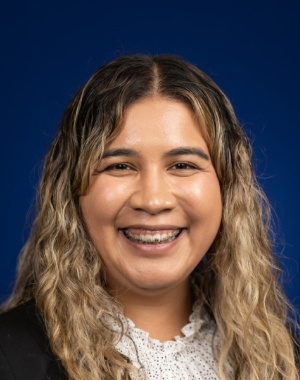
Moriah Nacionales-Tafoya is pursuing a Master of Public Policy with an international policy concentration at the Gerald R. Ford School of Public Policy. Moriah graduated from Wheaton College (IL) in 2017 with a BA in International Relations and Spanish. Her experiences as an intern at the U.S. State Department and as a Public Policy International Affairs Junior Fellow at Princeton University developed her passion for foreign policy and public service. Additionally, Moriah was a Global Education Fellow in Changsha, Hunan, China, where she learned Mandarin and taught English for a year. Prior to her time at Ford, Moriah served in various leadership roles at the Pacific Council on International Policy, a non-profit in Los Angeles, where she worked on projects regarding the U.S. immigration policy, the Sustainable Development Goals, and U.S.-Mexico relations. Moriah is passionate about advancing diversity, equity, and inclusion (DEI) in the international affairs sphere and uplifting the next generation of Black, Indigenous, and people of color (BIPOC) leaders in foreign policy.
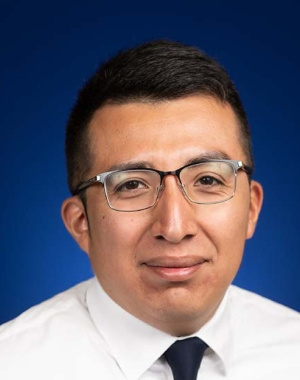
Juan Francisco Sandoval is a United States Army Veteran who received his bachelor’s degree with honors from Elmhurst University Illinois, majoring in Political Science, Urban Studies, and Philosophy. Born and raised in Chicago, Illinois, he first developed a yearning to work for the public good after observing his hometown's social and racial inequities. Juan solidified his goals of working for the public good through his experience in the Public Policy International Affairs fellowship and attending a Fair Housing/Fair Lending Course through the University of Illinois Chicago School of Law, developing a passion for social policy. Most recently, Juan worked at HOPE Fair Housing, a fair housing center in DuPage, Illinois, where he researched historical and contemporary housing appraisal standards and their impact on appraisal discrimination and worked in collaboration with the center to develop systematic testing standards for appraisal bias. Juan is passionate about making impactful changes in people’s lives, specifically those who have been historically marginalized, through policy and activism.
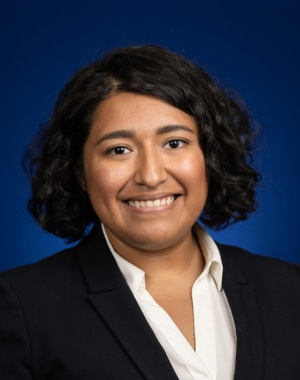
Shirley Araiza Santaella is a Master of Public Policy student at the University of Michigan’s Ford School. She was born and raised in Hillsboro, Oregon to a family of Mexican immigrants. A proud Oregonian, her commitment to public service is rooted in serving her home state by reducing inequities and empowering communities of color.
Prior to the Ford School, Shirley spent nearly four years working for Congresswoman Suzanne Bonamici (OR CD-1) right in the very community she grew up in. As a District Representative, Shirley’s portfolio covered outreach to Washington County (the district's most populous and diverse county) as well as education and workforce development. Her work included engagement on policies the Congresswoman championed, such as changes to the Public Service Loan Forgiveness program, increasing diverse educator pipelines in public schools, and equitable workforce training investments for accessible and well-paying employment opportunities. Inspired by the Congresswoman, her colleagues, and other policymakers, Shirley aspires to gain the training necessary to formulate evidence-based and effective policy, centered in equity and justice.
Shirley is a 2022 Emerge Oregon alumni and volunteers on local political campaigns in her home community. Long term, she would like to return to her beloved Oregon, working for the community and state she cares so much about and that gave her her first insights into public service.
Shirley received her undergraduate degree in Political Science from American University and was a Public Policy and International Affairs (PPIA) Fellow at the University of Michigan’s Ford School. She enjoys hiking, running, swimming, biking, and being in the great outdoors.
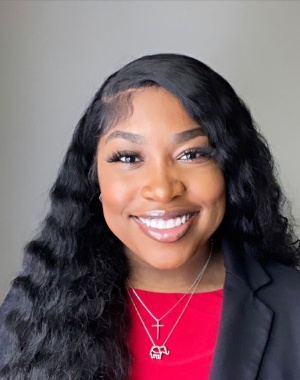
Christiana Verdelus is a Master of Public Policy student at the Gerald R. Ford School of Public Policy at the University of Michigan. She is a first-generation Haitian American woman born and raised in Broward County, Florida. Prior to attending the Ford School, Christiana graduated from the University of Florida with a Bachelor of Science in Health Education and a minor in Women's Studies. Her experiences as a licensed emergency medical technician, patient care technician in the hospital setting, and care coordinator at a free clinic for medically underserved patients led her to public policy, where she passionately works toward a safer, stronger, and more accessible healthcare system. She is particularly passionate about policy reform and community-centered collaboration in the areas of birth justice, reproductive justice, gender-based violence, sickle cell disease, health and social services integration, and immigrant and refugee health.
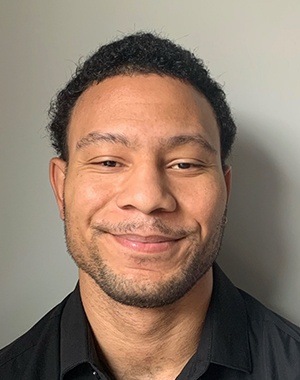
Max Hill Maximilian (Max) Hill (MPP '22) is a native of the San-Fernando Valley in Southern California. He attended Grinnell College in Iowa as an undergraduate, receiving a bachelor's degree in political science with a concentration in statistics. His interest lies at the intersection of fiscal and housing policy, ultimately hoping to combine the two to focus on the fourth sector development. Max currently resides in Ann Arbor and, in his free time, enjoys an amalgamation of fitness, anime, a little bit of sewing, and reading literature on history, politics, and theology.
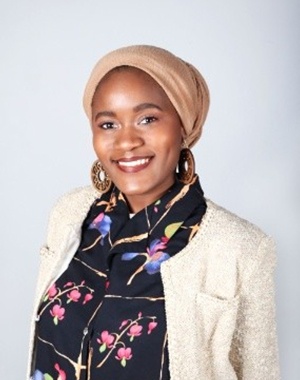
Fanta Conde Fanta Condé (MPP '22) is a native New Yorker with ancestral roots in West Africa. Prior to joining the Ford School, Fanta worked as a development and education coordinator at the Bronx Cooperative Development Initiative (BCDI) where she focused on curricular vision and execution for the Economic Democracy Learning Center. Additionally, her work focused on strategy development to overcome the traditional frameworks of philanthropy/institutional giving, and to encourage valuable partnership between organizations and grantmaking institutions. Previously, she was a fellow at the Sustained Dialogue Institute — a conflict resolution, and international peacemaking organization. Fanta holds bachelor’s degrees in political science and philosophy from Pennsylvania State University.
Fanta has broad social policy interests which include public education reform, fostering dialogue for peacebuilding, exploring sustainable poverty solutions for disadvantaged communities, and intersections of philanthropy. She is currently a Research Assistant at the Center for Local, State, and Urban Policy (CLOSUP). In her freetime, Fanta is a skincare enthusiast, a lover of small town travel, and an admirer of art history.
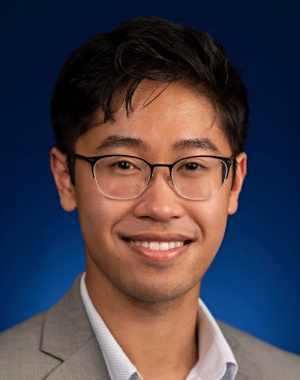
Paolo Mutia has experience in science communication and inclusive, collaborative decision making in the nongovernmental sector. Mutia built coalitions of Virginians that helped pass the Virginia Clean Economy Act, the state’s first major step towards climate action. Mutia’s leadership roles in the nongovernmental sector focus on inclusive, collaborative decision making. With skills in campaign management, communicating with specific stakeholder groups, and a technical background in environmental health and science, Mutia uses an interdisciplinary approach to engage with communities and help them develop environmental policy. Mutia is pursuing a Master of Public Policy and Master of Science in Information at the University of Michigan. Between his studies at the Gerald R. Ford School of Public Policy and the School of Information, he is interested in what public policy looks like that centers justice and equity at the forefront in the age of information technology and the rapid development of new technology. Mutia enjoys designing, building, and enhancing technology that are inclusive and equitable for everyone, especially for historically marginalized groups in environmental sustainability.
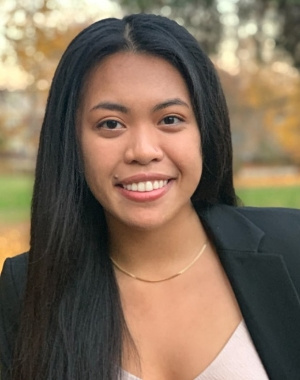
Anna D. Nguyen is a dual-degree student in the Master of Public Policy program at the Gerald R. Ford School of Public Policy and the Master of Science in Information program at the University of Michigan School of Information. Born and raised in Syracuse, New York, Anna graduated from Syracuse University in 2019 with a BS in Public Health and Policy Studies. Her experiences as a McNair Scholar at Syracuse University and a Public Policy and International Affairs Junior Fellow at the Ford School reaffirmed her passion for public policy, education, and health equity. Prior to attending the Ford School, Anna worked for the City of Syracuse as a city planner. In this role, she collaborated with residents to plan revitalization efforts of housing and commercial corridors. Using data to assess housing stock in under-resourced communities formed her belief that data science is essential in policy development. Anna’s passion in linking inclusive policy development and data science to increase accessibility of information grew from her policy interest in the causes and consequences of urban poverty. In her free time, she enjoys painting, roller skating, and watering her house plants.
-
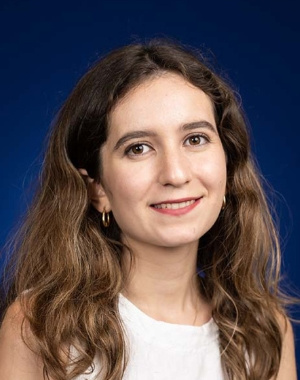
Paloma Ramos lived most of her life in Northern California but spent a portion of her childhood in Mexico. Paloma attended community college prior to transferring to UC Davis where she majored in Political Science with a minor in Latin American studies. Paloma worked as an intern at the Mexican Consulate in Sacramento analyzing different laws or bills that would impact the Mexican community. Paloma is passionate about equitable education access for lower-income and migrant students, and fair labor practices for migrants.
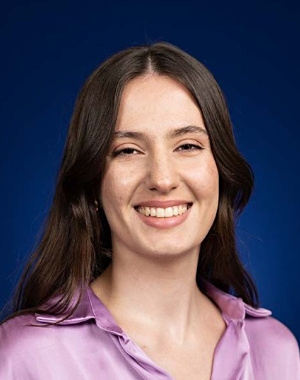
Eneida Hysi (MPP ’24) is an immigrant from Greece and Albania. She earned a Bachelor of Arts degree in International Studies from the University of Michigan in 2021. At UM, she participated in the Immigrant Justice Lab, an immigrant advocacy collaborative project, where she wrote asylum briefs for undocumented children seeking asylum in the U.S. As an undergrad, she worked with community partners and student organizations to provide educational and vocational resources to refugee youth in Michigan. Following graduation, she worked to address historic education inequities as a 6th and 7th grade math interventionist at an East Detroit middle school through AmeriCorps. Eneida hopes to continue her work in immigrant advocacy and education equity, specifically in the Detroit region.
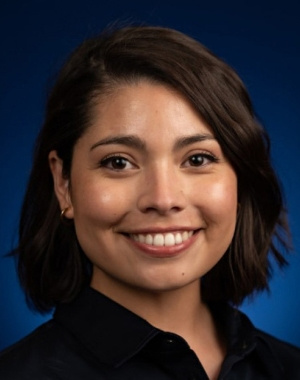
Sharon Ceron Espinosa (MPP ’23) earned a Bachelor of Arts degree in economics from California State University Channel Islands in 2015. She developed an interest in education policy through her experience as a Peace Corps Education volunteer in Ethiopia from 2016-2018. In addition to teaching English to 9th and 10th grade students in the region of Oromia, she developed programming that focused on promoting gender equality and youth empowerment. She most recently served as a Fulbright Teaching Assistant in Atlacomulco, Mexico. As a part of the Fulbright U.S. Scholar Program, she taught primary and secondary school students and led professional development workshops for local English teachers. Sharon is passionate about supporting historically underserved students and creating a more equitable public education system.
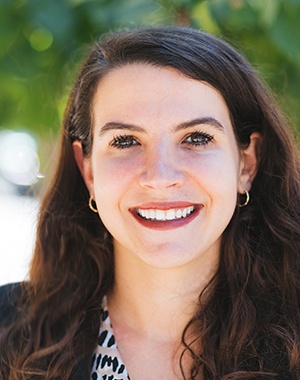
Heather Berg Heather Berg (MPP/MBA '23) received her Bachelor of Arts in leadership and public policy from the University of Virginia. A first-generation college student, she has dedicated her career to addressing systemic inequities in the education system. Heather began her career in the classroom, teaching 5th grade students at a Title I school in Nashville, Tennessee. She then served as a fellow for the Education Committee of the Council of the District of Columbia, where her policy recommendations on reducing suspensions and expulsions in Washington, DC schools were ultimately adopted and passed as law. Heather has also spent two years conducting K-16 research for an education advocacy nonprofit. She is passionate about building fair, equitable school systems that advance outcomes for at-risk students.
